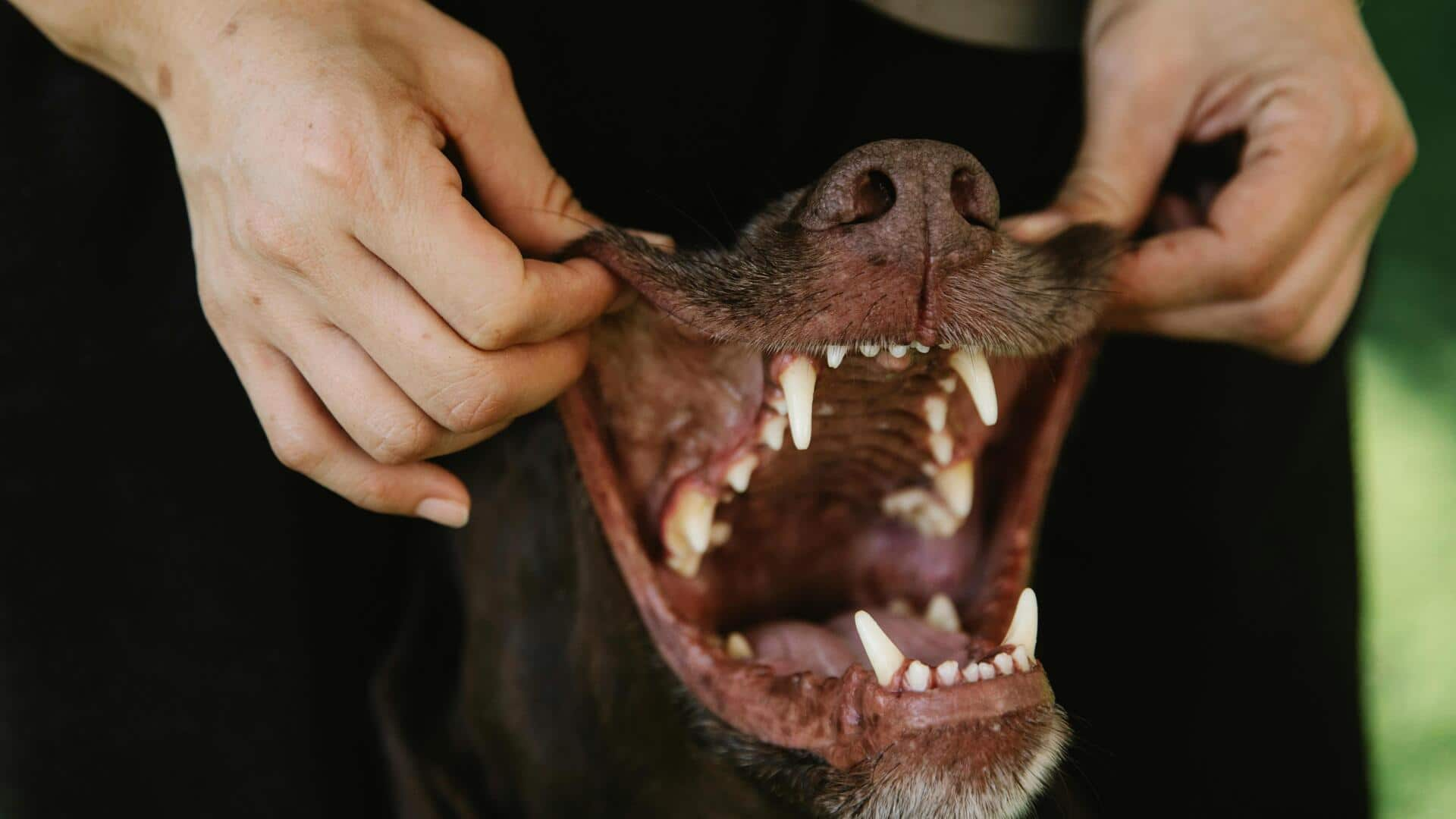
Say goodbye to dog's breath with these simple hacks
What's the story
Maintaining your dog's dental health is essential for their overall well-being. Regular brushing can help prevent plaque buildup and keep your dog's teeth healthy. While professional cleanings are important, daily brushing at home can make a huge difference. Here are some practical tips to brush your dog's teeth effectively, ensuring they have a bright smile and healthy gums.
Tip 1
Choose the right toothbrush and toothpaste
Selecting the right tools is key to effective dental care. Use a toothbrush designed specifically for dogs, which has softer bristles and a comfortable handle. Never use human toothpaste as it contains ingredients that are harmful to pets. Instead, opt for dog-friendly toothpaste available at pet stores. These come in flavors like peanut butter, making the experience more enjoyable for your furry friend.
Tip 2
Establish a routine
Consistency is key when it comes to dental care. Try to brush your dog's teeth at the same time every day, so it becomes a part of their routine. Whether it's after breakfast or before bedtime, find a time that works best for you both. A regular schedule helps in maintaining oral hygiene and makes it easier for your dog to get used to the process over time.
Tip 3
Use proper technique
Proper technique ensures effective cleaning without causing discomfort to your dog. Start by lifting their lip gently and brushing in small circular motions along the gum line and surfaces of the teeth. Focus on areas where plaque tends to build up the most, like the back molars. Be gentle but thorough, ensuring every part of their mouth gets attention during each session.
Tip 4
Reward your dog post-brushing
Positive reinforcement goes a long way in making dental care less stressful for both you and your pet. After brushing, reward your dog with praise or a small treat (that is safe for them) as an incentive for good behavior during the process. This helps create positive associations with tooth brushing sessions over time.
Tip 5
Monitor dental health regularly
Keep an eye out for any signs of dental issues such as bad breath, swollen gums, or difficulty eating food; these may indicate underlying problems requiring veterinary attention beyond regular home care practices like tooth brushing alone. Regular check-ups ensure any potential issues are addressed promptly, keeping your pet's oral health in check.